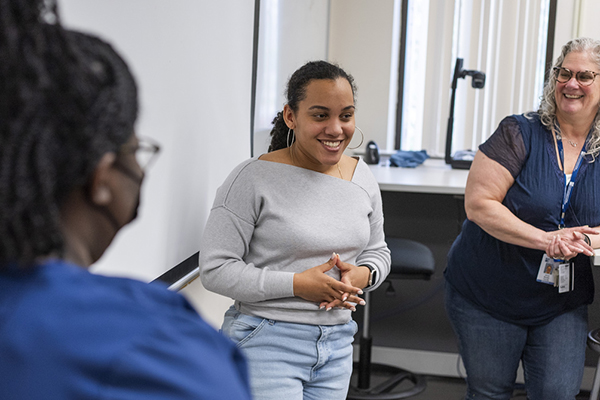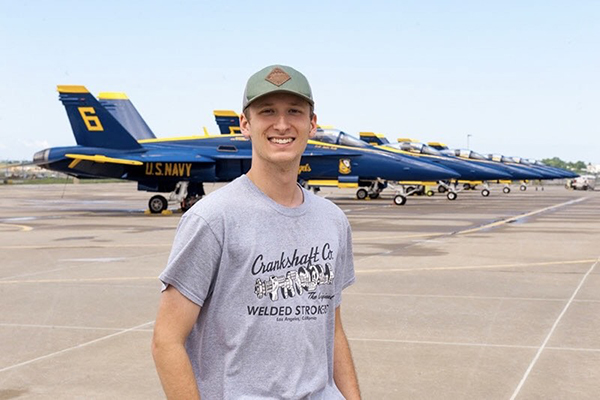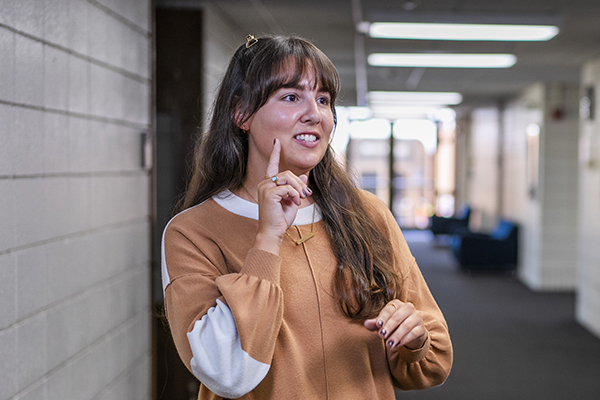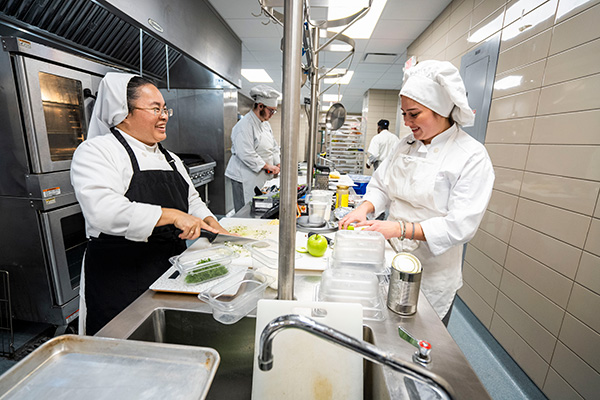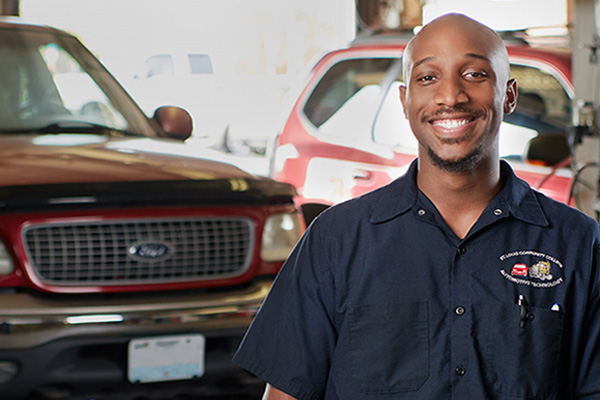Cannabis Program at Meramec Leads to High-Growth Careers
April 02, 2025
Posted by School of Science, Technology, Engineering and Math in Programs and Pathways
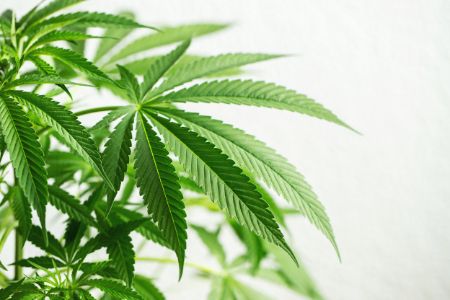
A Forward-Thinking Cannabis Program
The horticulture department at STLCC-Meramec received approval from the state of Missouri Department of Higher Education to launch the certificate of specialization in cannabis and hemp production in fall 2023. The program seeks to bridge the knowledge gap between traditional agriculture and the unique demands of cannabis cultivation, addressing a growing need in the market.
"St. Louis Community College at Meramec is very excited to be at the forefront of education in this new industry," says Meramec Campus President Feleccia Moore-Davis, Ph.D. "It's clear which direction things are heading in the cannabis industry. When it comes to preparing students for the workforce, we want our campus to be a fertile ground for cannabis education."
In November 2018, Missouri voters approved Amendment 2, legalizing medical marijuana. The amendment allows licensed businesses to grow, manufacture and sell cannabis products, which has led to a rapid increase in job opportunities across the sector. Missouri moved forward with legalizing recreational cannabis in 2022 through Amendment 3, further fueling demand for skilled professionals in cannabis cultivation, processing and distribution. With nearly 200 licensed dispensaries now operating in the state, the need for specialized knowledge in cannabis and hemp production is more relevant than ever.
Cannabis Education with a Hands-On Focus
What sets the STLCC courses apart from others in the area?
“I believe we are on the forefront as far as the hands-on components go and as far as having students work with the actual hemp plant in their labs,” says Jerry Pence, horticulture program coordinator. “I know that some (other programs) use tomato plants and have online components to their courses.”
This practical, hands-on approach is a cornerstone of the program experience. Students will have the opportunity to apply their knowledge directly, working with live plants in state-of-the-art facilities.
Sarah Moore, a graduate of the STLCC horticulture program and now an instructor in the campus's cannabis program, believes the new courses will enhance the existing curriculum and deepen students’ understanding of cannabis cultivation.
“There are several concepts that apply to cultivating cannabis and hemp,” Moore said, highlighting key areas such as soil science, greenhouse management and propagation techniques.
The cannabis courses will complement existing horticulture offerings on campus, providing students with a well-rounded education that prepares them for various aspects of the cannabis industry.
Navigating Challenges and Shaping Cannabis Professionals
As a pioneering campus for cannabis education, Meramec faces unique challenges. Patrick Vogan, assistant professor of horticulture, notes the limited research available due to federal prohibition. However, he remains optimistic.
"Fortunately, such research is progressing in countries like Canada and Israel, so there is always more information becoming available about what best practices should look like,” he says.
Pence said it was also initially challenging to create contacts and relationships within the cannabis industry, but over time they have made excellent progress. He added that Moore built the curriculum specifically to ensure students not only have an excellent hands-on component in their classes, but also that they can promote professionalism of the cannabis industry.
“The focus with building the curriculum was to remove the ‘broscience’ from the internet,” Moore said. ("Broscience" refers to anecdotal, often unscientific information spread informally on the internet.) “My goal was to build a foundation of knowledge of how plants work and give the students a hands-on portion to apply what they are learning in class—cannabis and hemp are just another crop that is now growing in our industry.”
Moore said some people are still timid about talking about cannabis, but discussing it openly and professionally with students helps them overcome it.
“In general, the students have been thoughtful, open-minded and very engaged,” Vogan said. “They are eager to learn about what works and they take their responsibilities in this industry seriously.”
Career Opportunities for Cannabis Program Graduates
The program is designed to prepare students for immediate employment in the cannabis industry. Graduates can pursue a variety of roles, including cultivation technician, dispensary manager, quality control specialist and more, with opportunities expected to continue growing as the industry matures.
“There are many job openings out there right now for people with this knowledge,” Moore-Davis said. “When it comes to preparing students for the workforce, we want to be ahead of other institutions. It really comes down to ensuring our students are prepared for the jobs and industries that are in demand.”
“Our students have the skills and knowledge level to jump right into a career after finishing the program,” Moore said. “Giving students an opportunity to apply those skills in their classes is going to set them above other candidates applying for those same jobs.”
The horticulture program at Meramec, the largest in Missouri, has ambitious goals. Pence hopes to extend the College's reach across the state, offering prospective students an affordable option in cannabis education. The program's impact extends beyond just providing accessible learning, however. Graduates are poised to not only succeed in a competitive job market, but also to drive innovation in the rapidly evolving cannabis industry. With their specialized knowledge and hands-on experience, these alumni are well-equipped to take on leadership roles in cultivation, product development and sustainable farming practices, contributing to the growth and professionalization of the field across Missouri and beyond.
